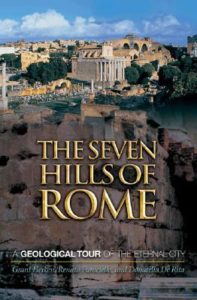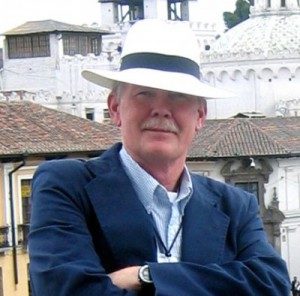
About the Talk
GEOLOGY AND URBAN SUSTAINABILITY—THE VIEW FROM ROME
From its time as the historic center of the Roman world, Rome has been continuously a political, religious, and administrative capital. Geologic and terrain factors assured its population growth and provided the conditions for survival of its culture in the ancient world. From lessons of urban development and prosperity, the Roman people developed a capacity to recognize and to manage the natural resources of the region.

Modern Rome was developed in a haphazard manner after WW II. Most residents have not been pleased with the results of rapid development, but they have developed a strong sense of needing to care for the city and to better manage its environment. There are new, detailed geologic maps of the city, programs for engineering and environmental geology, and cooperative work with archeologists—all within the city and regional governments. It is appropriate that the term urban geology has its origin in Urbs, which was the ancient name for the City of Rome. This talk is based on his 2005 book The Seven Hills of Rome—A Geological Tour of the Eternal City(G. Heiken, R. Funiciello, R., and D. De Rita, Princeton University Press, Princeton, 288 p).
About the Speaker

After completing his Ph.D. at the University of California in Santa Barbara in 1972, Grant Heiken worked for NASA’s Apollo Program as a geology instructor and as a researcher on lunar surface processes.
In 1975, he and his wife moved to the Los Alamos Scientific Laboratory in New Mexico, where he worked on geothermal exploration and development, volcanic hazard analysis, the uses of volcanic rocks, basic research on explosive volcanism, continental scientific drilling, and integrated urban science. He has co-written or edited 11 books. He retired in 2003 and moved to Freeland on Whidbey Island, Washington, with his wife Jody, who is a scientific editor. Grant volunteers for several service organizations, is on the board of the Whidbey-Camano Land Trust and is on the Island County water-resources advisory committee.
